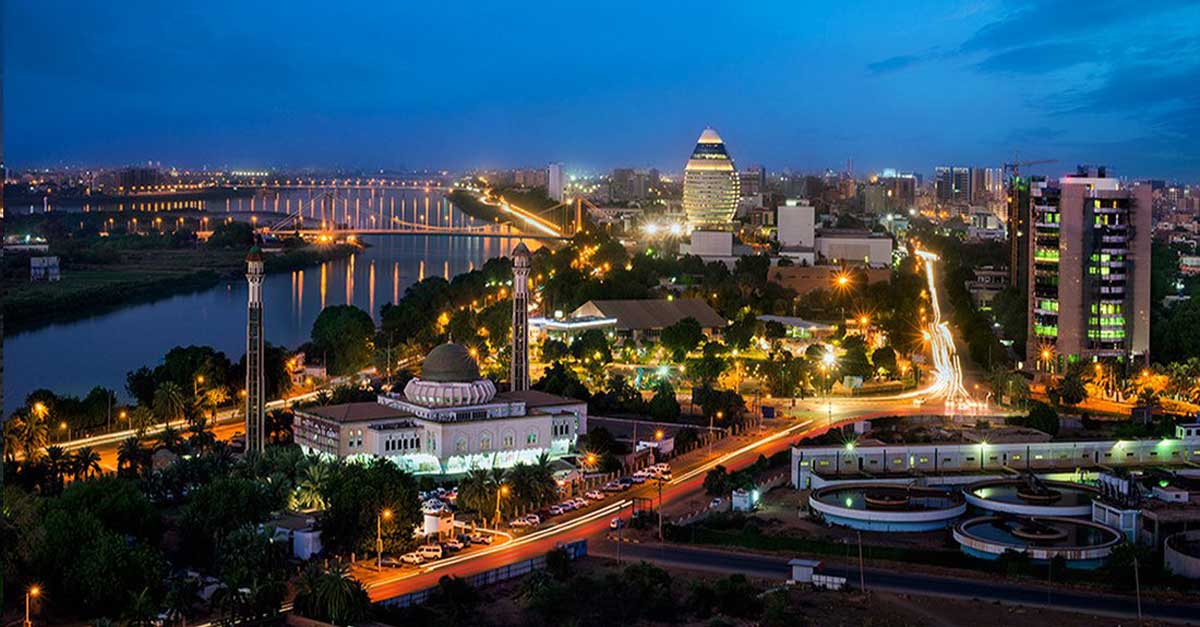Africa is planning to grow rapidly in the coming years.

Africa Economic growth will outpace the rest of the world over the next two years, with real GDP averaging 4% in 2023 and 2024, according to a report released Thursday, January 19, by the World Bank. African Development Bank (AfDB in English).
Akinwumi AdesinaThe bank president said that “Despite the confluence of multiple influences, growth in all five African regions was positive in 2022, and the outlook for 2023 and 2024 is expected to be stable.”
Among the factors weighing on the continent’s economy — which has been ravaged by structural poverty and armed conflict — Adesina pointed to slowing global demand, tightening financial conditions and disruptions to supply chains in the third year of the pandemic.
However, the estimated growth of 4% is higher than the global averages projected for 2023 and 2024, which are 2.7% and 3.2%, respectively.
The report “Africa's Macroeconomic Performance and Prospects” Average GDP growth is projected to slow to 3.8% in 2022, from 4.8% in 2021, amid significant challenges in the wake of the impact of Covid and Russia’s invasion of Ukraine.
But it highlights that despite the slowdown, 53 out of 54 countries in Africa recorded positive growth. The continent's five subregions remain resilient, with stable medium-term prospects.
Some of its economies should be among the fastest growing in the world in percentage terms in the two-year period beginning, as is the case in From Rwanda (7.9%), Ivory Coast (7.1%), Benin (6.4%), Ethiopia (6.0%), and Tanzania (5.6%).
In the sub-region Central Africa, Supported by favourable commodity prices, growth is estimated to have been the fastest on the continent at 4.7%, compared to 3.6% in 2021.
It was in South Africa Growth slowed further to 2.5% in 2022 from 4.3% in 2021. This slowdown reflects moderate growth in South AfricaHigh interest rates, weak domestic demand and frequent power outages have weighed on its economy.
in West Africa Growth is estimated to have slowed to 3.6% in 2022 from 4.4% in 2021. This reflects the slowdown in the global economy. Ivory Coast and Nigeriathe two largest economies in the region.
Nigeria’s growth in 2023, though impacted by COVID-19, insecurity and weak oil production – despite higher global crude prices – could benefit from continued efforts to restore security in the volatile oil-producing region.
For him North Africa Growth is estimated to slow by 1.1 percentage points to 4.3% in 2022, from 5.4% in 2021, due to a sharp contraction in Libya and drought in Morocco.
Growth is expected to stabilize at 4.3% in 2023, supported by a strong expected recovery in both countries and sustained growth elsewhere in the subregion.
Finally, it is calculated in East Africa Growth rate slowed to 4.2% in 2022 from 5.1% in 2021. However, it is expected to recover to the pre-pandemic average, above 5.0%, in 2023 and 2024.
Although East Africa’s production structure is relatively diversified, the subregion’s countries are largely net importers of commodities. As such, they bear the brunt of rising international prices, as well as recurrent climate crises – with droughts and floods notable in different areas in recent years – and insecurity, especially in the Horn of Africa.
“We will see a real acceleration in sustainable development in Africa to make it a fast-growing part of the global economy. Africa is the place to invest”: Jeffrey Sachs.
The report sends a cautionary note on the outlook in the wake of current global and regional risks, including the sharp rise in food and energy prices, the tightening of global financial conditions and the associated rise in utility costs.
climate change, With its damaging impact on local food supplies and potential risks of policy upheavals in countries holding elections in 2023, it poses equally challenging threats.
The report calls for bold policy action at national, regional and global levels to help African economies mitigate mounting risks.
prominent economist Jeffrey Sachs, Director of the Center for Sustainable Development at Columbia University, He praised the African Development Bank report because it “It shows that Africa can and will grow at seven percent or more per year on a sustained basis in the coming decades.”
“Building on the resilience we see in this report, we will see a real acceleration in sustainable development in Africa as it becomes the fastest growing part of the global economy. “Africa is the place to invest.” Sachs concluded.
Source: Inter Press Service

“Award-winning zombie scholar. Music practitioner. Food expert. Troublemaker.”

:quality(85)/cloudfront-us-east-1.images.arcpublishing.com/infobae/JWZMRC3GYND3VLK6WHWOTR6HMY.png)

:quality(85)/cloudfront-us-east-1.images.arcpublishing.com/infobae/VFQWKV5ST7POWUYT4L4GK6WQ24.jpg)






